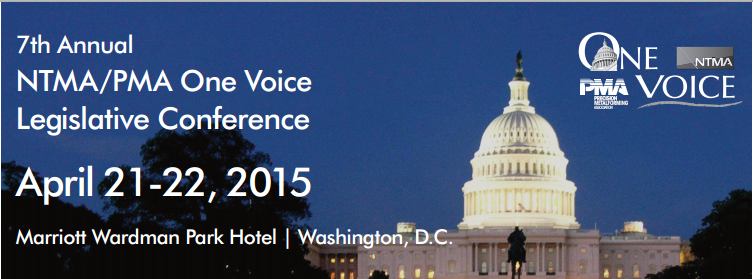Talking Tax Reform: How You Can Participate in Decisions that Impact Your Business
The 2014 elections ushered in yet another wave of change in Congress - one that allowed Republicans to take control of the U.S. Senate and install Sen. Mitch McConnell as the new Majority Leader.
In 2015, Congress is expected to tackle some tough issues. One item on the agenda? Tax reform.
In 2015, Congress is expected to tackle some tough issues. One item on the agenda? Tax reform.
Purchasing and building new machines is the lifeblood of the manufacturing industry. And many PMA members depend on valuable tax benefits to keep their facilities humming.
This year, 40% of One Voice members reported using the Section 199 domestic production activities tax deduction. At the same time, 45% reported using the R&D tax credit, 89% reported using bonus/accelerated depreciation, and a full 91% reported using Section 179 expensing.
PMA has consistently been among the leaders in Washington urging lawmakers to extend these business investment provisions. In fact, in 2014, the PMA advocacy program was instrumental in extending several key expired tax credits.
For example, in a November briefing at the House of Representatives, PMA Member Wes Smith, President and CEO of E&E Manufacturing in Plymouth, MI, testified that companies like his rely on key tax provisions to have the resources available to make investments and hire more employees.
“We just spent $10 million on a new set of machines, but that equipment takes over two years to place into service,” Smith said. “How can I plan and finance a two-year, $10 million project when I don’t even know what Congress will do two months from now? We can’t just purchase a machine on December 31st by midnight based on a vote Congress took that day.”
But the fight is far from over. The tax provisions most relied upon by PMA members will be on the chopping block again this year as the extension passed in 2014 will only last for one year.
And, of couse, tax incentives for growth are not the only issue weighing on manufacturers' minds.
Unfortunately, some in Washington want to lower the tax rate for C-Corporations
to 28%, while leaving the top 39.6% rate intact for most small businesses. The majority of One Voice members - 61% - are pass-through businesses, paying over 40% in total
federal taxes. Under some plans being discussed, policymakers would not include
these companies in tax relief. As part of PMA's advocacy efforts, it is important to work with members of Congress to
reform the tax code for all business, regardless of structure and type.
There’s a lot at stake for manufacturers this year, and to make a difference in Washington, those who know the industry best have to participate in the process.
You can join your One Voice colleagues in bringing some common-sense solutions to Washington during the seventh-annual PMA/NTMA One Voice Legislative Conference in Washington, D.C., April 21-22, 2015.
The conference is a unique opportunity to meet with members of Congress and the integral staff members whose decisions impact your business. In these meetings, you'll be able to address the issues most important to the industry and, even more importantly, share your own story. It is vitally important to remind Washington of the real-world implications of manufacturing policy in facilities across the country.
Never participated in a legislative conference? No problem! The One Voice Washington Office will offer a pre-conference webinar on April 9 at 2:00 p.m. Eastern to brief participants on the latest policy developments and what to expect during the congressional visits.
This is your chance to have your voice heard directly by the policymakers who are creating the laws of the nation. Register today.



Comments
Post a Comment